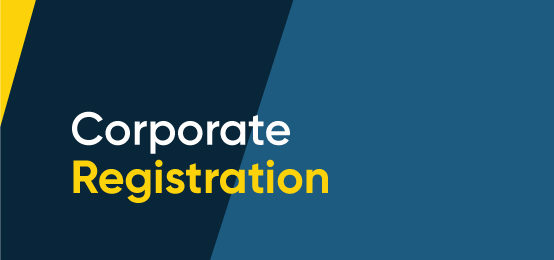Course Search
| PY1040 |
Basic Psychological Processes
This first introductory course in psychology gives students an understanding of themselves and other people through the study of basic concepts, principles, theories, and methods used in the scientific study of behaviour. The course covers research methods in psychology, the biological bases of behaviour, neurophysiology, sensation, perception, learning, states of consciousness, memory and cognition.
|
| PY1050 |
Social and Individual Behaviour
This second introductory course in psychology follows PY1040 and gives students an understanding of themselves and other people through the study of basic concepts, principles, theories, and methods used in the scientific study of behaviour. The course covers biological and cognitive development, emotion and motivation, social psychology, personality theories, mental and behavioural disorders, treatment of mental and behavioural disorders, and stress and health.
|
| PY2110 |
Statistical Methods for Psychological Research
The course provides: an application of statistical methods to psychological problems; description of data in terms of averages, measures of variability and measures of relationships; correlation and regression; problems of sampling theory and statistical tests of hypothesis, covering both quantitative and qualitative perspectives. Greater emphasis will be placed upon understanding the relevant principles than upon performing the mathematical calculations.
|
| PY2230 |
Developmental Psychology
Biological, cognitive and social aspects of psychological development will be explored, with special emphasis on infancy, childhood and adolescence.
|
| PY3000 |
Psychology of Sex and Sexual Interactions
This course examines human sexuality from biopsychological, developmental, behavioural, and psycho social perspectives. Students will learn about healthy and unhealthy sexuality and its potential psychological consequences on individuals and society.
|
| PY3120 |
Research Design and Methodology in Psychology I
This course is designed as an introductory course in quantitative research methods and statistics in psychology. Its primary goal is to direct students' development in critical thinking skills. Students will be able to make independent judgments and decisions based on reason and evidence as opposed to authority, tradition or opinion. The course will cover topics such as using objective measurement-based and inferential research strategies to develop hypotheses, designing appropriate data collection tools, analyzing and interpreting descriptive and inferential statistical results, and writing research reports and proposals.
|
| PY3330 |
Personality
This course is an introductory survey of representative theoretical points of view and research relevant to the major problems of the study of personality.
|
| PY3410 |
Social Psychology
This course is an introduction to the study of how individuals view and affect one another in a social context. Topics covered include persuasion, prejudice, behaviour and attitudes, conformity, altruism, group influence, and attraction.
|
| PY3470 |
Psychology of Gender
This course will involve a balanced coverage and critical analysis of both male and female issues. Material will be drawn from empirical research and conceptual discussions surrounding gender and gender roles. Examples of topics include the impact of stereotypes of masculinity and femininity, and gender in relation to power relations, mental health, intelligence, sexuality, violence, and caregiving. Are men and women really all that different? If so, how significant are the differences? Implications of similarities and differences will be discussed.
|
| PY3500 |
Psychological Disorders of Childhood and Adolescence
Students will examine the developmental, cognitive, biological, and behavioural processes involved in the development of various psychological disorders of children and adolescents with emphasis on causality, assessment, and treatment.
|
| PY3580 |
Cognitive Psychology
The general orientation of this course is the basic research perspective of the scientific definition, investigation, and modeling of the structures and processes of attention, perception, learning, memory, cognition, and consciousness. It is a course in the current established research traditions, theories, and paradigms of cognitive psychology.
|
| PY3600 |
Health Psychology
This is an introduction to the field of health psychology and will examine psychological factors that influence physical health and illness. Topics that will be explored are stress management, mind-body issues, health promotion and health compromising behaviours, coping with critical and chronic illness, psychoimmunology, and social factors in health and illness.
|
| PY3730 |
Emotion and Motivation
This course will be a survey and interpretation of theories and findings in the field of emotion and motivation. It is designed primarily for serious students of theoretical psychology and the behavioural sciences, students interested in their own intellectual growth and development, and students who wish to understand human behaviour. This course will describe and evaluate the scientific method and the process of theory building in psychology, a selection of theories on motivation and emotions, and an application of these theories to individual behaviour.
|
| PY3750 |
History of Psychology
Psychology is a relatively young science but its history is varied, intriguing, and extends well beyond the first psychologists. From its roots in early mythology, religion, Greek and Enlightenment philosophy, empiricism and evolution, to modern Psychodynamics, Humanism, Behaviourism, the Cognitive revolution, and neuroscience, we examine the trends, competing theoretical perspectives, and socio-political influences on the current discipline of psychology.
|
| PY3752 |
Brain and Behaviour
This course is an introduction to the neural basis of sensation, movement, learning, memory, motivation, and cognition as studies in both humans and other animals.
|
| PY3755 |
Neuropsychology: Intermediate
This intermediate course in neuropsychology builds on the knowledge gained in previous courses in brain and behaviour and gives students a more in-depth understanding of the principles of neuropsychology and the science and practice of clinical neuropsychology. Students will learn the structure, the functional organization of the nervous system, and the role this organizational network plays in producing behaviours including sensory, motor, cognitive, and affective. In addition, students will be introduced to the neuropsychological diagnostic tools used to assess brain dysfunctions and disturbances.
|
| PY3810 |
Learning and Behaviour
This course is an introduction to the psychological theories of learning. Topics discussed will include the evolutionary context in which learning occurs, reflexes and fixed action patterns, sociobiology, the behaviourist theories of classical and operant conditioning, criticisms of the behavioural perspective, and criticism of the transitional memory theories. This course is the first of a pair of courses in the field and is generally followed by the advanced course in cognition, PY3580.
|
| PY3950 |
Forensic Psychology
This course is an overview of research, practice and policy issues in forensic psychology. Both criminal and civil forensic topics will be discussed, including the history of forensic psychology, ethical issues in forensic practice, police selection processes, theories of criminal behaviour, criminal profiling, jury selection, validity of eyewitness reports, abuse against women, child custody, insanity, and competency.
|
| PY4060 |
Introduction to Theories of Counseling and Psychotherapy
This course examines the basic premises and therapeutic processes that characterize various theoretical approaches to counselling and psychotherapy. Four major schools in psychology will be studied: Psychodynamic (Freudian, Jungian, & Adlerian), Behavioural and Cognitive-Behavioural, Humanistic (Rogerian, Gestalt, & Existentialism), and contextual and Systemic (Family, Feminist, & Multi-cultural). Emphasis is placed on critical analysis of the various approaches as well as self-reflection in relation to values, beliefs, assumptions about human nature, and the worldview.
|
| PY4090 |
Topics in Controversial Issues in Psychology
In this course, students will have an opportunity to discuss, analyze, and debate a variety of contemporary and controversial issues in the field of psychology and in our societies and cultures including psychological diagnoses, therapy, gender identity, sexual behaviour, violence, religion, politics, the Self, intelligence, education, sex, drugs, and rock 'n roll, and others. The topics covered will vary with the instructor who teaches the course, and students shall enjoy a great deal of latitude in selection of their topics.
|
| PY4110 |
Advanced Statistical Analysis
This is an advanced course in statistical analysis. It deals specifically with Multivariate statistical procedures, analysis, and interpretations. The course combines in class lectures and hands-on data analysis using the SPSS statistical package.
|
| PY4220 |
Violence Against Women
This course will examine the extent, form and psychological impact of violence against women and will address the role that various social, cultural, political, and economic factors have on women's vulnerability and psychological experiences. Topics covered include different forms of violence against women; psychological trauma experienced as a result of this violence; issues of power and authority with regard to gender socialization and gender dynamics; the contributions of social institutions (e.g., sports; the media; schools; the workplace; the military; the medical, legal and criminal justice systems) on the prevalence, form and psychological impact of violence; the special vulnerability of girls, adolescents and women who are marginalized due to race, sexual orientation, ability, economic status, etc.
|
| PY4350 |
Introduction to Clinical Psychology
This course examines the theoretical, practical, professional, and research issues in clinical psychology. Emphasis will be placed on the various methods of assessment, evaluation and treatment modalities for individuals and groups.
|
| PY4390 |
Abnormal Psychology
This course focuses on understanding the concepts and theories underlying assessment, diagnosis and treatment modalities of various psychological disorders, with emphasis on the multimodal treatment approach.
|
| PY4410 |
Advanced Topics in Social Psychology
This advanced course in social psychology focuses on and provides students in-depth knowledge of topics in social psychology which may include the psychology of pop-culture, mass media, psychology of religion, cultural diversity, war and peace, persuasion and fear, and violence with emphasis on current research in each area. As topics may vary from year to year, it may be taken more than once for credit in different topics.
|
| PY4420 |
Introduction to Counselling Psychology
This course is an introduction to counselling and guidance services and is designed to appeal to students who plan to work in the fields of psychology and mental health, rehabilitation, education and other human-service occupations. Students will be exposed to a variety of theoretical perspectives in counselling and will be assisted in acquiring basic trans-theoretical micro counselling skills.
|
| PY4580 |
Advanced Topics in Cognitive Psychology
This advanced course in cognitive psychology focuses on and provides students in-depth knowledge of topics in cognitive psychology which may include reasoning and problem solving, decision making, intuition and metacognition, visual cognition, memory, language, knowledge transfer, conscious and non-conscious processes, the shaping of cognition, learning, human and computer information model. As topics may vary from year to year, it may be taken more than once for credit in different topics.
|
| PY4690 |
Principles of Psychological Assessment
This course examines the psychometric assessment tools used in psychology and education. The issues around test construction, administration, and interpretation will be addressed. Measurement techniques, personality and situational factors that may influence the results and the use of psychological and educational tests in the decision making process and diagnosis will also be discussed. In addition, special attention will be given to the assessment of children and adults, minorities and those with special needs, and the use of assessment in career counselling. The ethical and the legal implication of the use of psychological tests will also be covered. Students will be introduced to several instruments that measure aptitude, achievement, interest, intelligence, and personality (objective and projective).
|
| PY4730 |
Introduction to Clinical Psychopharmacology
This introductory course in psychopharmacology focuses on the groups of psychotropic drugs used in the treatment of psychological disorders. This course provides students the foundational knowledge of topics in clinical psychopharmacology including psychotropic drugs and their impact on neurotransmitters and hormones, the side-effect of psychotropic drugs, the short- and long-term consequences of the use of psychotropic drugs, and the clinical efficacy of the effect of psychotropic drugs on various mental disorders.
|
| PY4740 |
Psychophysiological Recordings
This advanced course in psychophysiology focuses on and provides students in-depth knowledge of the processes and instruments used in recording and studying a person's physiological responses to internal or external cognitive, emotional, and/or behavioural stimuli. Examining the physiological changes that accompany psychological or behavioural manipulation, as well as, the behavioural changes produced by manipulating physiological variables is essential for understanding the mind-body interaction.
|
| PY4755 |
Neuropsychology: Advanced Topics in Clinical Neuropsychology
This advanced course in neuropsychology focuses on and provides students in-depth knowledge of topics in clinical neuropsychology which may include specific brain dysfunction and injuries, neuropsychological and psychiatric disorders, assessment, and rehabilitation with emphasis on current neuropsychological research. As topics may vary from year to year, this course may be taken more than once for credit in different topics. Note: Additional and specific pre-requisites may be required depending on the topic.
|
| PY4980 |
Individual Research
This course is designed to enable students to participate in an ongoing faculty research project. Students will also gain experience conducting a literature review in a related research area, developing a research proposal, and submitting an application for ethics review. This course cannot be taken more than twice.
|












